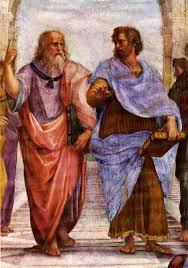Ancient philosophy
Many of the doctrines central to Christianity have important philosophical implications or presuppositions. In the history of Christian theology, philosophy has sometimes been seen as a natural complement to theological reflection, whereas at other times practitioners of the two disciplines have regarded each other as mortal enemies.
This course is intended to be an introduction to philosophy both in the sense of a primer and in the sense of a guide to understanding the essential nature of the philosophical enterprise and its relationship to and influence upon science and religion in general and Christianity in particular. The central questions as to the nature and scope of philosophy will be approached historically, tracing the emergence and development of philosophic thought in ancient Greece.
Competences
Specific competences
The student will be able to recognize the principles and to use the methods of philosophy (of religion).General competences
The student will make knowledge with the religious (and not only) ideas of ancient philosophical schools, and will be able to compare them. The student will (re)discover and utilize the ancient Greek philosophy.Course structure
-
What is philosophy? Its purpose and meaning.
-
Presocratic philosophy. The school of Miletus. Thales, Anaximander, Anaximenes.
-
The school of Elea. Parmenides, Zeno of Elea, Melissus of Samos
-
Heraclitus
-
Pythagoras and the Pythagoreanism: Anaxagoras, Empedocles
-
Sophists of ancient Greece
-
Life and teaching of Socrates
-
Life of Plato and his periods of activity
-
Plato concerning the ideas, his theory of anamnesis and his moral philosophy
-
Life of Aristotle; classification of sciences
-
Metaphysics and logic of Aristotle; his theory concerning ousia
-
Cynicism
-
Stoicism and epicureanism
-
Neoplatonism (Plotinus, Porphyry of Tyre, Iamblichus Chalcidensis / Iamblichus of Apamea); meeting of philosophy and Christianity (Celsus, Libanius of Antiochia, Hypatia of Alexandria)
Total estimated time
Classroom study
- 2 hours/week (Course: 2 | Seminar: 0 | Practice: 0)
- 28 hours/semester (Course: 28 | Seminar: 0 | Practice: 0)
Individual study
- Time for studying course notes and bibliography: 50 hours/semester.
- Time for further documentation in libraries, electronic platforms, or on the field: 15 hours/semester.
- Time for preparing essays, papers, or documentation: 8 hours/semester.
- Time for personal tutoring: 2 hours/semester.
- Total individual study: 75 hours/semester.
- Total estimated time: 103 hours/semester.
Examination
The main elements of the exam: preparing written papers; active presence on classes, oral exam
